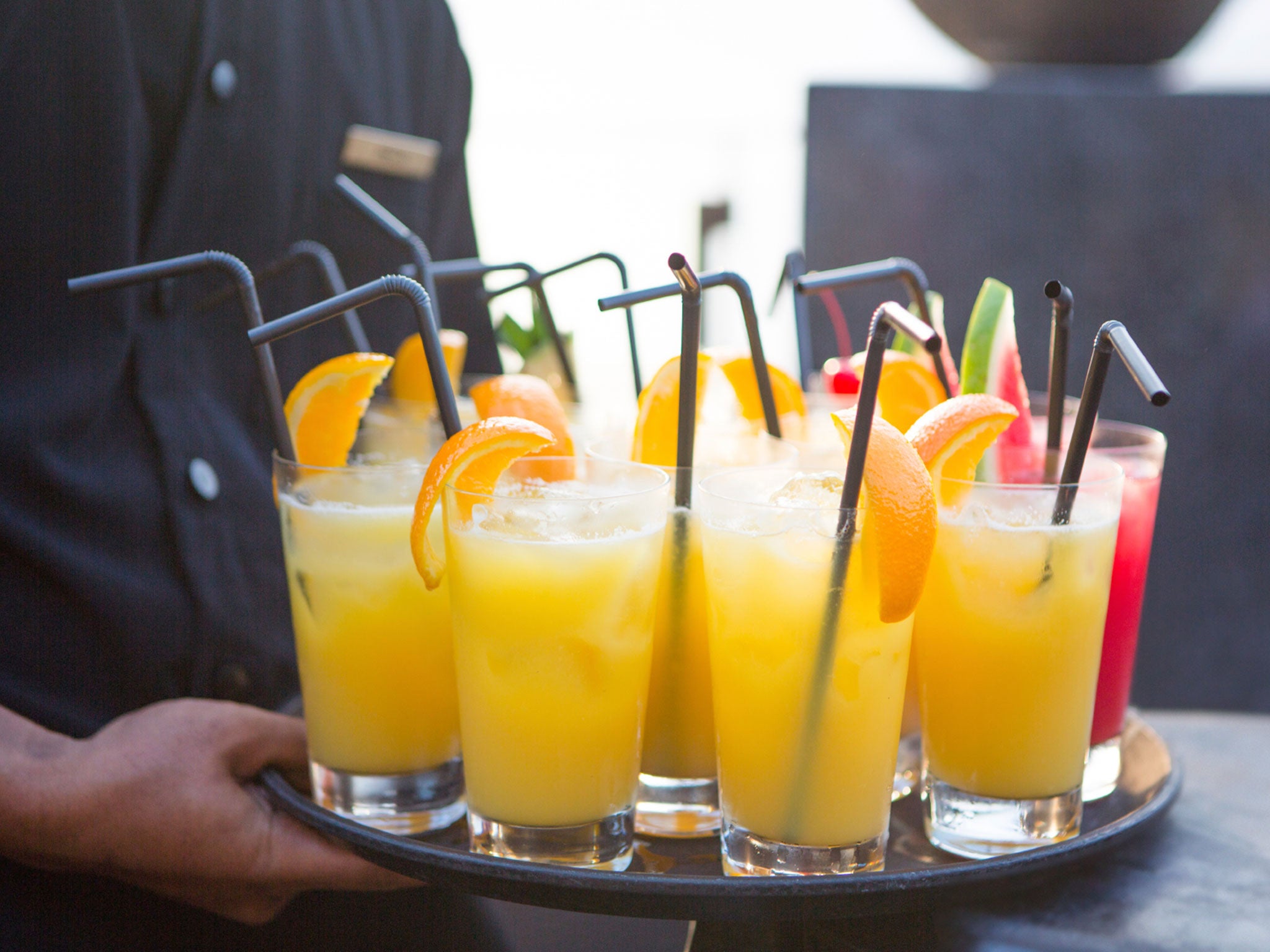Orange juice is under fire from nutritionists — and now it's disappearing from breakfast in America

Americans are turning away from orange juice.
The drink was considered a breakfast staple for decades, and has long been featured prominently in nearly every cereal ad as part of a "complete breakfast."
But Americans' consumption of orange juice has been plunging in recent years, as awareness grows over the scant nutritional value of the drink.

Nutritionally, orange juice isn't much better for you than a glass of soda or any other sweetened beverage, as Business Insider's Erin Brodwin wrote earlier this month in a post calling it the "biggest con of your life."
A 12-ounce glass of orange juice contains 153 calories, 34 grams of carbohydrates, 27 grams of sugar, and 2.4 grams of protein. That's the same amount of carbohydrates and almost as much sugar as a bag of M&M's, as Brodwin points out.
That's why nutrition experts and health bloggers have been railing against orange juice in recent years. When you Google "orange juice good for you," the top results include posts titled "Why orange juice is slowly killing you," and "The #1 reason to avoid orange juice."
Perhaps that's why sales of the juice are down 13% in the past four years, according to data from Nielsen.
Frozen orange juice has experienced the biggest drop in sales, falling 39% to $98 million since 2012, compared to a 10% drop to $3.1 billion for refrigerated orange juice in the same period.
Florida, which is the top producer of oranges used for juice in the US, is on track for the fifth straight season of declines in orange output — representing the worst decline in more than a century, according to Bloomberg.
On top of falling demand, orange producers have also been battling a bacterial disease that has been wiping out their groves.
As growers leave the business, orange-processing plants have also been shutting down.
Florida once had more than four dozen processing plants but now has only seven, according to The Wall Street Journal.
"You're witnessing gut-wrenching decisions where multigenerational family citrus growers have reached a point where their risk tolerance isn't there to continue," Adam Putnam, the commissioner of the Florida Agriculture Department and Consumer Services, told The Journal.
Sales of orange juice are declining at a time when Americans' breakfast consumption is actually on the rise.
Breakfast consumption is expected to grow faster than the US population over the next few years, and more and more Americans are choosing to eat breakfast away from home, according to NPD Group.
Thanks to the rise of the juicing trend, however, a wide array of juices and smoothies are available as alternatives to orange juice.
Read more:
• This chart is easy to interpret: It says we're screwed
• How Uber became the world's most valuable startup
• These 4 things could trigger the next crisis in Europe
Read the original article on Business Insider UK. © 2016. Follow Business Insider UK on Twitter.
Join our commenting forum
Join thought-provoking conversations, follow other Independent readers and see their replies
Comments
Bookmark popover
Removed from bookmarks